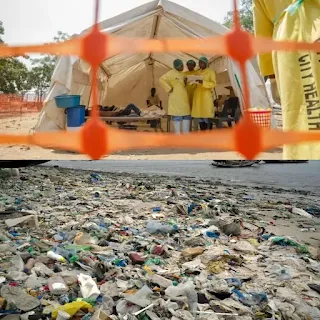Emergency measures have been put in place in Harare, Zimbabwe to contain the spread of cholera. Patients suffering from the bacteria and those suspected of having contracted the disease are interned in a clinic in Kuwadzana, the epicenter of this epidemic. This high-density suburb of the capital accounts for almost half of the reported cases.
In Kuwadzana, as in several other districts of the capital, due to lack of water supply and adequate infrastructure, cholera proliferates on a large scale. With 51 deaths confirmed in the country and more than 7,000 people infected, a state of emergency was declared in Harare on Friday by health authorities.
The town hall, the Ministry of Health and NGOs joined forces to double the water supply in the affected areas. In addition, these entities rely on chlorination. This is the last stage of water treatment before its distribution to homes for consumption.
According to the Red Cross, health authorities are struggling to contain the high number of cases since the start of the epidemic, particularly due to a lack of healthcare personnel, as well as the absence of medical supplies. The epidemic is spreading rapidly, affecting several geographic areas, including 45 of the 62 districts in the country's 10 provinces.
Kenya: no agreement on treaty against plastic pollution
No agreement on the establishment of a treaty aimed at reducing plastic waste. A treaty that everyone wanted, a few weeks before COP 28. Negotiations on plastic pollution ended on Sunday in Nairobi, Kenya. The frustration of environmental NGOs.
"Unfortunately, what we've seen here is a lot of circular talk aimed at a few countries that refuse to move forward. And what we need are countries like the United States and others ambitious coalition members who are stepping up and showing leadership so we can secure a treaty - one that would massively reduce plastic production and protect human health." Says Graham Forbes, Greenpeace Head of Delegation,
This is the substance of the treaty which divides. NGOs are calling for a 75% drop in production by 2040 and companies want to recycle instead.
"We have almost a hundred and fifty fossil fuel industry lobbyists here - trying to undermine progress and protect their right to profit with impunity, at the expense of people and the planet. And I think fundamentally, we haven't seen the leadership we want to see from countries that know better." Adds the head of the Greenpeace delegation.
Negotiations on plastic pollution will continue next April in Canada and conclude in South Korea - at the end of 2024.


Informative
ReplyDelete